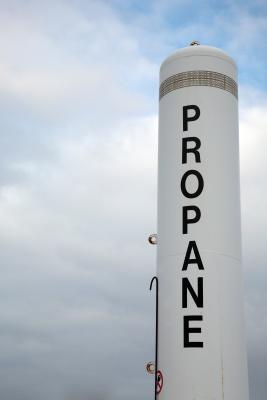
Liquid propane gas, or LPG, has been used for years to power engines, and conversion kits for carbuerated engines have been widely available for years. Fuel-injected engines, on the other hand, were historically much more difficult to convert for burning LPG. However, recent improvements in technology of conversion kits have made it more feasible to convert fuel-injected engines. Since the majority of fuel-injected engines are found in automobiles, and the conversion process for automobiles is more complex than for stationary engines, this article concentrates on converting automobiles to run on LPG.
Determine whether a conversion to LPG is feasible for your vehicle. The biggest hurdle in converting a road-going vehicle to LPG is navigating the maze of regulations regarding LPG conversions. The most important regulatory agencies are the U.S. Environmental Protection Agency (EPA) and the California Air Resources Board (CARB). These agencies maintain separate lists on their websites of vehicles and conversion kit suppliers that have passed certification testing.
Ensure you have access to LPG refueling stations in your area. The U.S. Department of Energy maintains a database of alternative fueling stations you can consult to determine the feasibility of fueling your vehicle with LPG. Many conversion kits are "dual-fuel" kits that retain the ability of the engine to run on gasoline as well as LPG.
Select a kit for your vehicle that fulfills your specific needs. Research the individual suppliers and kits carefully. Complete kits typically include an LPG storage tank rated for use in vehicles, modified fuel injectors, a fuel regulator for the LPG fuel, fuel delivery hoses, mounting hardware, and updated software for the vehicle engine control module. Components are generally not interchangeable between kits.
Install the kit. Because of the complexity and scope of the conversion process, you may find it simpler to have an experienced technician install the kit. Your conversion kit supplier should be able to provide you with a list of certified installers that have the tools and equipment to install and test the LPG conversion. Very experienced do-it-yourselfers may be able to complete the installation as well. If you decide to install the kit yourself, make sure the warranties of the conversion and vehicle won't be adversely affected.